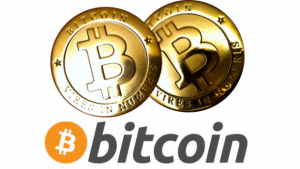Peer-to-Peer Marketplace: The Best Place to Buy Bitcoin

Editor’s note: The following article is an op-ed written by the Paxful team. All views in this piece are purely Paxful’s.

When bitcoin was first invented, the peer-to-peer aspect of it was the backbone. As a private and decentralized currency, we were always intended to trade with our peers. What we don’t realize is that there is a peer-to-peer movement happening and whether we like it or not, a revolution is beginning.
Peer-to-peer finance has revolutionized the way we can buy bitcoin by changing the way we pay for it. Peer-to-peer has given us a lot of options, but more on that later. In this article, we’ll be going through the ways peer-to-peer finance has revolutionized the way we trade and why peer-to-peer platforms are the best places to buy bitcoin.
What is a peer-to-peer marketplace? How is it different from the bitcoin exchanges I’ve already seen?
Traditional exchanges are the ones that took over right after bitcoin was invented. Up to now, they are still the more used and more well-known type of exchange. You might be asking yourself “what is a peer-to-peer marketplace and how does it differ from a traditional exchange?” There are several key differences that make the trading experience vastly different from one another
Traditional bitcoin exchanges
As said earlier, this type of exchange has been around longer, making it the more used and more well-known option for bitcoin traders.
The way traditional bitcoin exchanges work is that buyers and sellers are matched via order books. After they’re matched, a middleman is tasked to complete the trade for them. On traditional bitcoin exchanges, buyers and sellers rarely interact with one another and they don’t know exactly who they’re trading with. To some people, no direct interactions with one another could mean more privacy.
Peer-to-peer marketplace
Peer-to-peer marketplaces are the lesser used, but the popularity of peer-to-peer platforms are rising. On these platforms, buyers are matched with sellers and they are tasked to complete the trades themselves. This is a HUGE deal but we’ll talk about what that means later on.
The main differences between a traditional exchange and a peer-to-peer marketplace
Higher fees on traditional exchanges
Since there is a middleman helping you, he/she will have to be compensated by taking fees from the trade. This means traditional exchanges will have higher fees than peer-to-peer marketplaces.
Peer-to-peer marketplaces, on the other hand, are more cost-efficient as platforms take very little fees as the buyers and sellers are tasked to complete the trade themselves. It’s simple: less meddling by the platform = fewer fees.
Regulatory restrictions (ability to be affected by external factors)
Traditional bitcoin exchanges have shown in the past that they can be affected by regulatory restrictions. One example that comes to mind is what happened in China. Withdrawals were frozen for a month because The People’s Bank of China decided to intervene. The interference affected two of the largest exchanges. As a user, this is NOT something you’d want. If you were trading on that platform, all your transactions would be halted for a month.
On peer-to-peer marketplaces, users are not affected by these regulatory restrictions because of its peer-to-peer nature. Peer-to-peer marketplaces merely connect buyers and sellers. They have little to do with the actual trade process.
The issue of scammers
You might be thinking: “If it’s a peer-to-peer platform, does that mean I run into more scammers than usual?” Technically, the answer to that question is yes and no. The answer is yes because since anyone can join a peer-to-peer marketplace (especially that some of these platforms still need to implement KYC laws), there are a lot of bad apples that get mixed in with the good ones. The answer is also no because there are several security measures that can prevent you from running into a bad apple.
Most peer-to-peer marketplaces have a security measure (like escrow) to protect both buyers and sellers from a potential scam. The way escrow services work is that a third party would hold all the coins until all the proper requirements are submitted. The coins will only be released after the trade is completed and both parties are happy.
The magic touch
Although this might not be for everyone, peer-to-peer marketplaces add a personalized touch to the trading system. This can allow for faster and more efficient trades, depending on your trade partner of course.
Some people like to build business relationships on peer-to-peer platforms because trading becomes so personalized.
Why peer-to-peer marketplaces reign supreme
Now that you know the main differences between a peer-to-peer marketplace and a traditional exchange, you’ll need to understand what makes peer-to-peer finance an obvious choice. There are 3 main factors to why I think you should choose a peer-to-peer marketplace over a traditional bitcoin exchange:
A wide array of payment options
If you want to buy bitcoins with gift cards, they’ve got it. If you want to buy bitcoin with PayPal, they’ve got it. If you want to buy bitcoins with bank transfers, they’ve got it. You get the point. The number of payment options is one of the main reasons that make peer-to-peer marketplaces the best place not only to buy bitcoin, but also to sell bitcoin.For example, you have some extra bitcoins on your account that you’d like to spend, you can look at the wide variety of gift cards and choose one to trade for. You’ll find many offers of people who are willing to do so. These gift cards will also come at a discounted price compared to if you buy gift cards at the nearest convenience store.
Since it’s a platform where people are matched with each other, tasking them to complete the trade themselves, more payment methods are coming into fruition every day. This is because users are also usually allowed to suggest new payment methods which means that the hundreds of already available payment methods grow every day. Just imagine asking this question in a room of millions of people: “If there is anyone willing to accept _______ as a payment method, I’d be glad to trade it for some bitcoins.”
Power to the people
Buyers and sellers on peer-to-peer marketplaces are tasked to complete the trade themselves. This is what that means in terms of trading:
As a seller, you’ll be able to set personal preferences in accordance with the way you trade. This means two things: (1) first, you can set your own profit percentage. Most peer-to-peer platforms will allow you to set how much bitcoins will get on the dollar. This is HUGE as it allows you to choose how much money you can make. Obviously, you still have to be fair with your prices so that buyers will take on your offer, but it allows so much wiggle room to how much money you can make off of a single trade. (2) Second, it allows you to filter your trade partners. As said earlier, it’s totally possible to run into scammers on peer-to-peer platforms. The best thing you can do to counter that is to filter the people you trade with. There are different red flags, depending on which specific peer-to-peer platform you’re using, so make sure to familiarize yourself with the red flags of your platform. Ultimately, this means that YOU decide who to trade with, and there’s no price you can put on that.
As a buyer, you’ll have the chance to find great deals from good sellers. You’ll be able to find sellers that will give you a great price for their bitcoins. This will allow you to also filter which offers you take. Familiarizing yourself with the platform’s red flags can also prevent you from running into scammers.
For both the buyer and the seller, you’ll have the ability to form fruitful business relationships that can last a lifetime. If you’re buying bitcoins, take note of your favorite sellers and you’ll have one constant source for reliable bitcoin. If you’re selling bitcoins, take note of your favorite buyers and you’ll have one loyal customer.
Clarity
The best peer-to-peer platforms have a trade chat option that allows you to have a live chat with your trade partner. This may seem like such a small thing to note, but being able to chat with your trade partner is essential in completing efficient trades.
You can use this trade chat to clarify the requirements of the seller as well as to clarify the payment of the buyer. It’s simple, more clarity = less confusion = more efficient trades.
The peer-to-peer revolution has begun
All around the world, people have been starting to see the effects of peer-to-peer finance. Aside from making a great profit via peer-to-peer marketplaces, good things are happening around the world because of bitcoin and its peer-to-peer nature. One example of this is the #BuiltWithBitcoin campaign by ZamZamWater and Paxful. This campaign has not only already built two schools, but has also provided scholarships to female Afghan refugees. This campaign shows us that peer-to-peer finance isn’t playing around. It’s here to stay, it’s here to do good, and we should welcome it with open arms.
The point of this article is not to force you to join the revolution, but rather to make you aware of what good it can bring in not only your life, but also the lives of the less fortunate. Peer-to-peer gives us even more control over our own money, control that we could have only dreamed about. With that being said, there is nothing but one question left to ask: will you join the revolution?








